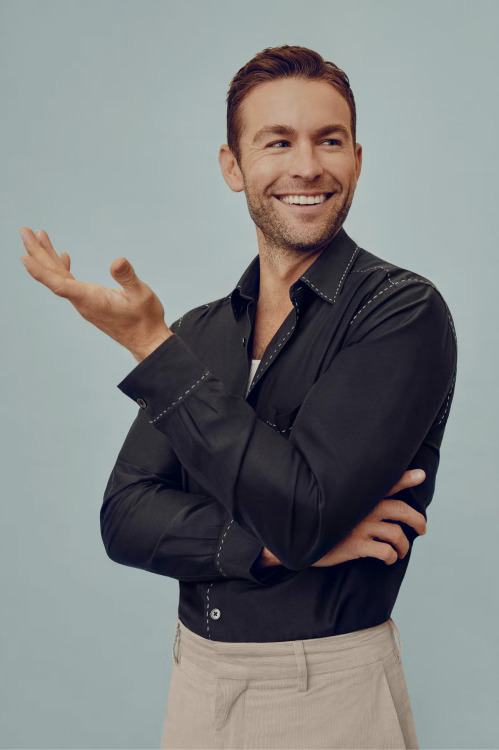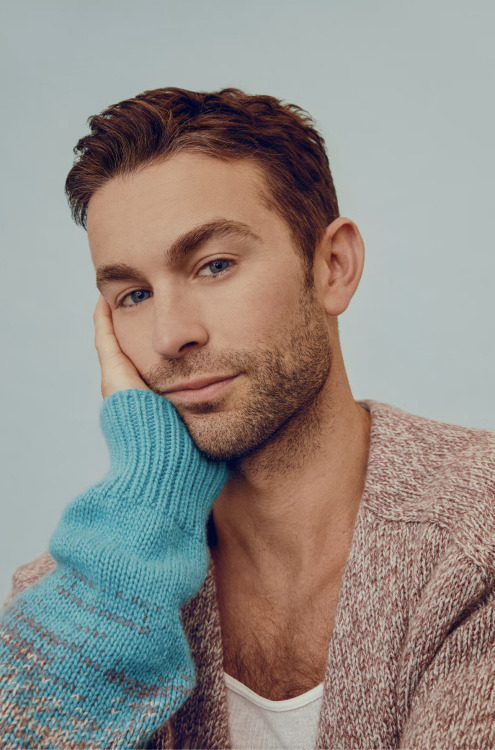#chance crawford
Text
Why We Love the Boys
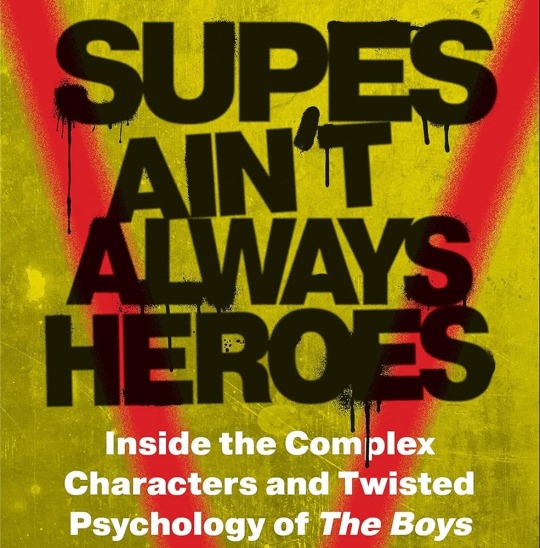
As promised, here is my review of Supes Ain’t Always Heroes. I actually used to write book reviews in my high school journalism days, so here we go!
What this book is: A masterful deep dive. A study on character psychology, the source of the comic and show’s inspiration, and the narrative themes illustrated in The Boys that parallel American culture and our real lives.
It includes interviews from one of the comic’s creators, Darick Robertson, The Krip himself (Eric Kripke), and actors Jim Beaver (Robert Singer), Aya Cash (Stormfront), Chace Crawford (The Deep), Jessie T. Usher (A-Train), Nathan Mitchell (Black Noir), and of course, Jensen Ackles (Soldier Boy).
It also includes a small but significant ode to the creativity of fans and fandom (with a mention of fanfic writers)!
I’ll admit, I felt seen. 😊
Who wrote it: Psychologists Lynn S. Zubernis and Matthew Snyder. Zubernis is a self-proclaimed fangirl of not only this show, but Supernatural and Eric Kripke in general. (That aspect definitely comes through in her writing.)
She is also editor of Family Don’t End with Blood: Cast and Fans on How Supernatural Changes Lives and There’ll Be Peace When you Are Done: Actors and Fans Celebrate the Legacy of Supernatural. Both of which I now want to read.
Several other authors also contributed to this book, as their expertise and backgrounds lend to the subjects they’re covering, such as racism, sexism, the entertainment industry, the comic’s inception, and more.
Who wants to read this book: Anyone who enjoys learning about what makes characters tick. What drives their choices, their sense of morality and justice, and their trauma and strife that lead them to do heinous things. This book will help you better understand your favorite characters (and how to write about them).
Perhaps most importantly, this book is for anyone who wants to read it put into words, why many of us love The Boys, as well as Supernatural.
In a way, the latter is more escapism entertainment than The Boys. Because in this show, there isn’t much, if any escape.
Despite this being a “superhero show,” as we all know, it’s so much more than that. It’s a mirror held directly into our own faces: about why we enjoy heroes and antiheroes, and excuse the “bad behavior” of the ones we like.
About mental health, grief and loss, nature and nurture, coping mechanisms and the importance of choice in dealing with trauma; of racism, sexism, misogyny, weaponized social media, politics, corporate greed, and the power (and cruelty) of good marketing.
This book explores the true villain of the story (and it ain’t Homelander).
I’m going to get into my favorite aspects of this book—as well as an amazing chapter on Soldier Boy’s character study (and why we love him, perhaps too much).
Though in my opinion, it was missing one small, but key thing…

The Mirror of The Boys on Screen
This world is a gritty, bloody, and at times all-too realistic take on how superheroes would be if they lived in our world.
They are the worst of celebrities, professional athletes, and politicians all rolled into one. They are the shiny products of a company and are marketed as such. And they often buy into their own hype.
Some of my favorite quotes on this topic:
“The Boys often reflects darkness in our real world that is uncomfortable to watch. While we go through the tedium of our daily lives, trying to get by and using television or comics as an escape, it can feel difficult and overwhelming to confront the very real and insidious sources of authoritarianism, nationalism, and corporatism that are not just part of a story.
“This show holds up a mirror and forces us to catch a glimpse of things we need to question, and asks us why we so easily believe the talking points of systems with marketing departments and press flacks behind them that carefully massage every word in order to get us to feel enamored with their product or policy.” (p. 227-228)
“The Boys works to reveal the nonaltruistic, sociopathic nature of contemporary US corporate culture. In a sense, The Boys uses the behavior of its characters to diagnose not an individual, but a culture.” (255)
In studying narrative I’ve learned that the best fiction and art serve to reflect the human experience. In this case, it’s something The Boys does expertly, even though it’s packaged in extreme, shocking, and often uncomfortable ways. But also in brutal, hilarious satire that’s fun to watch.
It “exposes real-world abuses, revealing many” of our own frustrations in American culture and in life in general (267).

Major Themes & Questions Explored
Several Boys themes are explored from a psychological, cultural, and narrative point of view, as I mentioned earlier. These are some of my favorite segments:
Toxic Masculinity & Narcissism
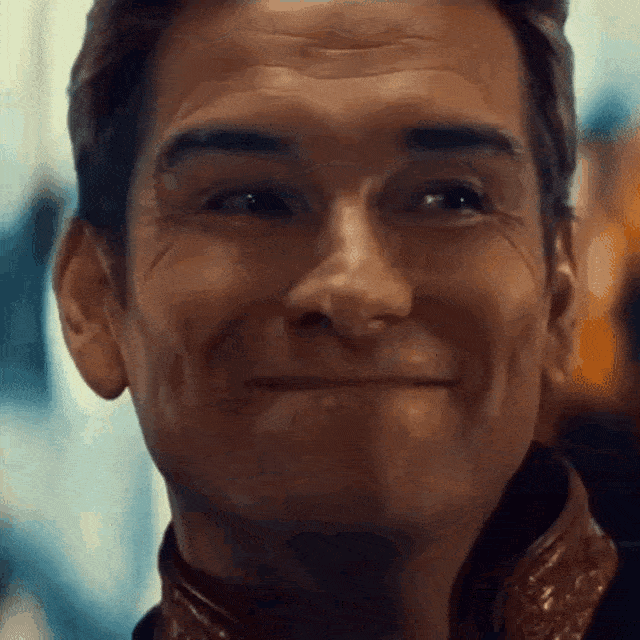
A whopper in The Boys, and the main theme of season 3. This book defines clearly what both of these words actually mean from a psychological point of view.
It also takes the bad taste out of your mouth that you might get from just hearing the words “toxic masculinity,” as it’s a phrase that can be carelessly thrown around to describe men and character traits that aren’t truly toxic.
How being emotionally available to your loved ones and not repressive of your feelings doesn’t make you weak, or less of a man. And how “being strong” doesn’t mean being physically violent and domineering. (AKA: the Big Swinging Dick™️ in the room.)
Narcissism is explored in a very interesting way. The book gives a diagram of different aspects of narcissists and how each character (Soldier Boy, Homelander, Butcher, and the Deep) falls into them.
Soldier Boy, for example, is classified as a “Classic Narcissist,” while Homelander a “Malignant Narcissist.” <- This will play into SB’s character study, and the main difference between SB and Homelander.
Butcher, however, displays narcissistic tendencies but is not, in fact, a narcissist. (More of an antisocial sociopath. Yay for him.)
Misogyny & Sexism

The classic superhero world of comics dates back to the 1930s and ‘40s. It has been, and in many respects still is a (White) male-dominated industry, where in narrative, female superheroes typically work under a male leading the team, as in Justice League, Teen Titans, and the Avengers.
As much as I love DC and Marvel comics, female characters have also been drawn wildly sexual for male readers and the male gaze, and non-supe characters have been written primarily as love interests and damsels for the hero to save. (Think Lois Lane, Lana Lang, and Mary Jane.)
Modern adaptions have given female characters more agency, but their foundations were rooted in underlying sexism and the mythic hero—an Odysseus-type with certain characteristics of male strength and heroism. And that goes all the way back to classic literature, like The Odyssey, Beowulf, and the Epic of Gilgamesh.
In The Boys, the female supes go through the same issues as their comic counterparts. And they are treated how women are treated in the real world—marketable as sexual objects. (Starlight’s forced costume change is a prime example.)
Author Danielle Turchiano argues in the book that the women in power at Vought (Madelyn Stillwell, later Ashley) are given only so much power as men like Stan Edgar and Homelander give to them.
Stillwell, Ashley, and even Stormfront “drink the Kool Aid” of the misogynistic infrastructure of Vought, but they’re not truly “powerful” in and of themselves. (112)
And I would add that the only female characters that have or find true agency are Grace Mallory, Annie January/Starlight, and Maggie Shaw/Queen Maeve. Even Victoria Neuman is trying to work the political schematic and Vought by operating “within the system” Vought has created.
Mental Health, Trauma & Unhealthy Coping Mechanisms
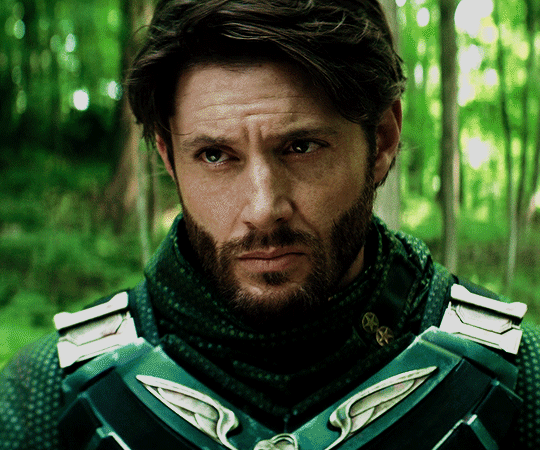
This is a huge section, and rightly so. It kind of spans throughout the book, really, because all of these characters have traumas that inform who they are as adults making the (often grotesque) choices they make.
For many of these characters, it stems from their upbringing and fraught relationships with their parents, whether explicitly or implicitly explored in the show.
Butcher: Is an antisocial sociopath with narcissistic tendencies. Arrogant, emotionally manipulative, violent, and obsessive. He was also physically and emotionally abused by his father, led to use drinking and violence as a means to cope and express himself. His rage is so deep under his skin—he loathes himself for it (and his father), but struggles immensely to escape it.
Homelander: A malignant narcissist, the height of arrogance, and emotionally manipulative. He lacks empathy for others' pain, and in fact enjoys inflicting it. Yet he was a sensitive, gentle child who only wanted connection and love. Vogelbaum raised him like a lab rat and fostered him in a cold, detached cell. He was raised to be entitled and to believe he was an all-powerful god, the lord of his own kingdom within his mind, excused from the responsibility of his actions.
Soldier Boy: Also a narcissist; violent, arrogant, misogynistic, and often indifferent to the damage he causes, emotional or physical. Yet he was also emotionally abused by his father, who set impossible standards for what it meant to be a man. It drives Ben to try and prove his worth to his father, though he’s never able to. It fosters the lack of self-worth he feels as he seeks validation through fame and what he believes power to be.
These three characters have many similarities, but also notable differences that set them apart from one another. And both Butcher and Soldier Boy use substances like drugs and alcohol to cope with their traumas—ones that their forced stoicism and sense of manhood won’t allow them to easily express.
“We see Soldier Boy use substances almost continuously in season three to deal with his PTSD from the childhood emotional abuse he received from his father, the betrayal and assault from his team, and the torture he endured from the Russian scientists.
“In the short term, the use of drugs and alcohol to avoid thoughts and feelings about traumatic experiences can be felt as helpful, but in the long term, it hinders one’s ability to process emotions and can cause a deeper depression from the guilt and shame of both avoidance and substance abuse.” (27)
Heroes, Antiheroes & Villains

This book explores two key questions that the show encourages you to think about:
Who the hell is the hero of this story?
And who is the villain?
The surface-level answer is that Homelander and other supes like him are the villains, and Butcher and his band of bros are the heroes (or antiheroes). But they commit just as questionable, sketchy, and downright murderous acts as the supes they’re trying to take down.
“Butcher is not really a good guy. He’s manipulative and self-centered. His reasons for wanting to take down Homelander are utterly personal. That it serves the greater good is almost a coincidence.” (9)
And if Butcher is not a hero, but a vengeful vigilante, then why do we root for him so much?
Well, we see his incredible flaws. But I sympathize with his struggle in losing his wife and the life he could've continued to have with her. I root for the underdog going against the hydra head of Vought and the psychopathic Homelander.
And I see in Butcher, as I also do with Homelander and Soldier Boy, their traumas and their internal conflicts, their deep-rooted self-loathing, and a desire, deep, deep down…to be loved.
(And to foster connection with others, even if they’re unable to sustain them.)
On the flipside, we have antagonists in this show who do truly heinous things. What makes them compelling and even sympathetic, yet again, are their painful upbringings that have shaped them to be who they are. The supes of this show are byproducts of being treated like products.
Like the saying goes: Villains aren’t born, they’re made.
That’s why the real villain of this story is Vought International. It’s an allegory, and an indictment of the ruthless corporate greed that pervades American culture—and much of the world.
It’s why Stan Edgar is sometimes scarier to me than even Homelander (and was the true villain of my story, Break Me Down), if far more insidious.
Speaking of BMD, let’s get to it, shall we?
Here’s a (lot) bit about the Soldier Boy section of the book.

Soldier Boy: Why We Can’t Hate Him
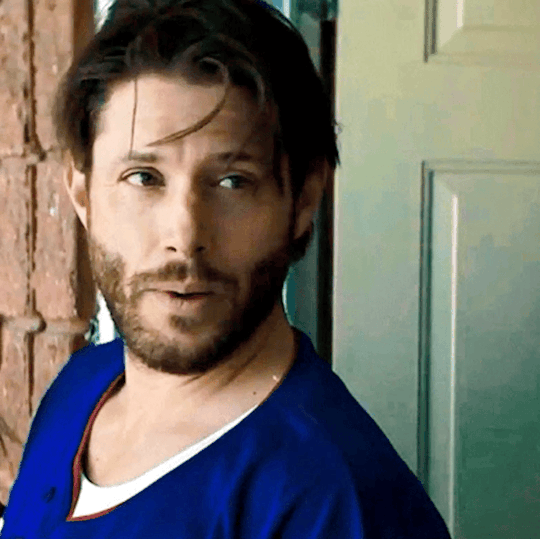
I had to laugh out loud at the title of Soldier Boy’s chapter:
Loving the Villain: The Confusing Case of Soldier Boy
I’m not gonna lie. I felt called out. 😂
It is a confusing dichotomy. Soldier Boy is an absolute asshole. Misogynistic, narcissistic, arrogant, callous, violent…
But also deeply traumatized, a man-out-of-time, emotionally abused, byproduct of the historically and culturally different time he was raised in, a man who just doesn’t get it…
And also charming, adorably grumpy, and undoubtedly attractive.

It’s hard to indict “Ben” as an unredeemable villain in the same way I do Homelander, the psychologist-labelled Malignant Narcissist.
Therein lies the main difference between Soldier Boy and Homelander: Soldier Boy doesn’t take joy in harming others the way Homelander does. But he still harms people, whether he means to or not.
Zubernis confirms many of my own conclusions and ideas about Soldier Boy, and why I still rooted for him to be better, and didn’t want him to die at the end of season 3.
As Zubernis rightly exclaimed during her own watch of the finale: “Noooo, don’t kill the Danger Grandpa Baby Murder Kitten!” (175)
Because Jensen did what he does best in his roles: He made us feel Ben’s pain.
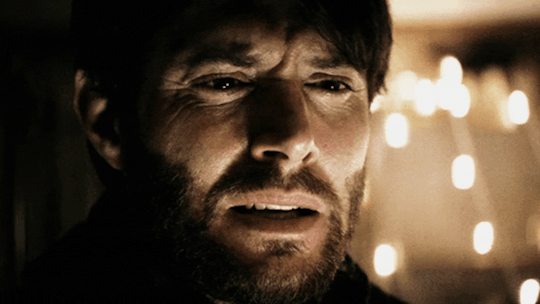
“What’s funny is, in regard to Jensen playing Soldier Boy, you know he’s fucking fantastic, he’s just so good at bringing the audience, and it’s almost like—what I laugh about is, he was probably a little too good at his job!” Kripke said. (180)
And he continues, “In part it’s because of the fandom. So many people took his side in the finale, they’re like, Were’s on his side, fuck everyone! And you’re like, but he’s the bad guy and he’s trying to kill a ten-year-old.”
Were there fans who held this viewpoint? I’m sure. There are some radicals who don’t give a fuck and will side with their favorite character, come whatever. But while I can’t speak for others, that’s not how I interpreted that moment in the season 3 finale.
Yes, I think Soldier Boy was (wrongfully) willing to fight Ryan. Do I think he would’ve killed him? I’m not sure. I think he would’ve done what he had to do to get Ryan out of his way in his fight with Homelander. Maybe he would’ve been more violent than he intended, in the callous collateral damage he’d shown throughout the season, or maybe he would’ve gone that far, if provoked.
It’s a tough call, as I think this character can go one way or the other in terms of his “villain” nature. We just haven’t seen enough of him in the series yet for me to make that conclusion on the canon-version of Soldier Boy. (In fanfic, I’ve explored my own interpretation.)
But overall, I think The Krip once again underestimated the power of Jensen’s acting.
…And the ardent nature of his mostly female fanbase. 😂
Why We Love Soldier Boy
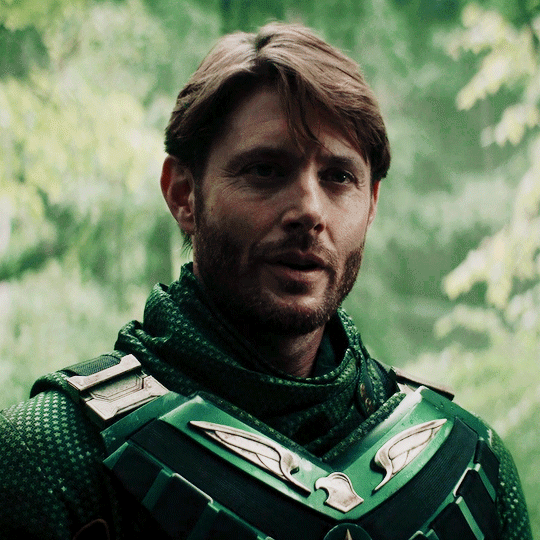
The author cites multiple reasons for why we love Ben more than we probably should:
It’s Jensen Ackles. Fair enough. His talent speaks for itself.
Soldier Boy’s backstory: He was emotionally abused by his father and as a result, he has a complex regarding his self-worth, “something to prove,” and a secret need for attention, validation, and praise.
He has trauma and PTSD: He is displaced from what is familiar to him and confused when the boys find him, and that is the least of it. He’s been tortured for 40 years. Can you even conceive of that?
He’s charming: in a sexy grandpa, adorably grumpy, lovable asshole kind of way.
We’re drawn to danger: dangerous “edgy” types are fun, especially when you’re physically attracted to the character.
He has his moments of vulnerability: Jensen’s ability to play the nuance in the character is the ultimate draw. I felt his pain, could see his torture, and his resulting PTSD. He longs for a family, even if his ability to bring up those children is questionable at best. 😅
But I think the one aspect the author doesn’t consider is the character’s capacity for change.
Soldier Boy’s Potential
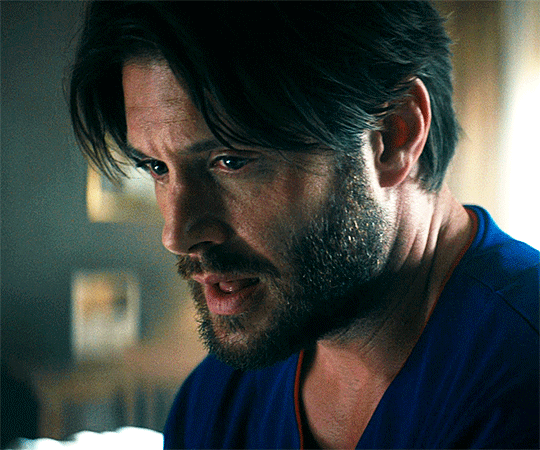
Again, I don’t think you can write off Soldier Boy’s potential for positive character development the same way you can Homelander, or even Butcher.
For one thing, we just haven’t spent enough time with the character. A lot of his collateral damage after he escapes imprisonment has been accidental, or PTSD-induced. Though we can’t discount how he murdered M.M.’s grandfather via collateral damage (and was callous about it).
I think this is what drew me to write about Soldier Boy. “For all his arrogance, his chauvinism, his massive ego and general bastardry, there’s still humanity in Ben.”
In the book, Nathan Mitchell also says something amazing about his own character (Black Noir) that resonated with me about Soldier Boy as well:
"One of the ingredients of a compelling character is contradiction. How does one aspect of our personality contradict with one another? [...] Who is he underneath? How might his true nature contrast with the demands of his job?"
Or coded for Soldier Boy/Ben: The pressures he puts on himself to be the type of man he thought his father wanted him to be.
Again, his sexist, misogynistic ideals are shaped by the time he was raised in, by being a product of Vought, and of his father’s emotionally abusive upbringing. Does this excuse or justify all of his behavior? Of course not.
But I think those 40 years in captivity changed him from the careless alpha dog we saw in 1984 Nicaragua…
He admits to Crimson Countess, with tears in his eyes, that he’d loved her. That he waited for her and his team—arguably the only social system he has in his life—to save him. He’s gutted to realize that not only did she and the rest of the team never love him, they hated him. They traded him for nothing. Just to get him out of their lives.
For all he claims to be afraid of nothing, tough as shit, he is afraid when he goes to face Mindstorm. He knows what the supe is capable of, and he visibly takes a shaky breath and tries to steel himself.
For a moment, he drops the “Soldier Boy” persona that he wears like a fine tailored suit. And he tells Butcher that the backstory Vought created for him was a lie; he grew up a rich kid who got sent to boarding school, but flunked out, because "he was a fuck up." And his father couldn’t be bothered to discipline him, implying he didn’t care enough about his own son to even lay a hand on him.
He is reluctant to kill Homelander when he finds out he’s Ben’s son (sort of). He even claims that he would’ve been willing to share the spotlight “with his own son.” — Something I doubt even Homelander would do.
Ben even seems to be fighting tears when he levies the same vitriol at Homelander that his own father did at him:
Homelander: “Weak? I’m you.”
Soldier Boy: “I know. You’re a fucking disappointment.”
Let me be clear. I don’t think it’s up to someone to change him (like a love interest). I don’t subscribe to that thinking, that a woman can “change” a man.
For example: In season 2, Butcher tells Becca, “Who was I before you? Nothing.”
And yet, she tells him that he put her on an unrealistic and unsustainable pedestal, in which she felt like she wasn’t allowed to fully be herself, unable to keep him from flying off the handle in rage. That kind of relationship (where one is dependent on the other to “keep them in check”) doesn’t work as a lasting, satisfying redemption arc, and it doesn’t work in real life either.
I do think, however, that a person is capable of change if they’re broken down enough (pun intended), and if they themselves have a desire to change. Someone they encounter can inspire them to be better, like Butcher with Hughie. That person can help support the other.
At the end of the day, however, it’s Ben that has to want to change.
If he wants love and connection, he’ll have to somehow want it, and try (and sometimes fail) to get it, thereby giving him agency and a redemptive character arc.
Now, obviously, it’s up to The Krip where Ben goes from here. He seems to have a more indicting vision of the character than I do (at least, so far). But we’ll see! The fan demand to bring back the character has already had Kripke confirming that Soldier Boy will be back.
Maybe it will encourage him to give the character a more satisfying ending than Dean Winchester got in Supernatural. Though granted, that one wasn’t his doing, apparently he was in favor of the ending the writers came up with.
Comparing Dean & Ben
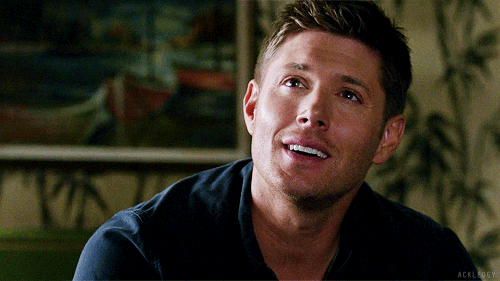
In his interview segment, Jensen talks about what, if any, are the comparisons between Dean Winchester and Soldier Boy. AKA: Wanting a father’s approval, and an undercurrent of “John Wayne”-esque masculinity in John Winchester that Dean sought to emulate.
Jensen also talks about where he drew from to not only embody the character of Soldier Boy, but bring nuance to him—and show the peeks of vulnerability under the bravado and stoicism.
“He’s so fragile and his ego is fragile. Just like Homelander. These bigger-than-life powerful heroes really have a glass jaw…
“And everyone walks on eggshells around him [Soldier Boy], and they tell him that they love him, and it’s the same with Homelander. Then when all of a sudden he faces his old team and Crimson Countess says we never loved you, we hated you—that’s a gut punch for him. Because even though on some level he may have known that, he never thought he would hear it.
“And he probably propped himself up around trying to believe otherwise, because how can you walk around knowing everyone you’ve ever cared about hates you? It’s too painful.” (191)
It really is. And I inherently felt this about Soldier Boy/Ben when I watched season 3 for the first time. That’s exactly what I got from his performance and thought, there’s more to this guy than the toxic masculinity he represents.
This guy just wants to be loved, like everyone else. He wants to feel important, and even after his father’s dead, “show him” that Ben is the man his father wanted him to be. And so, he bought into the illusion Vought painstakingly crafted for him.
Whether he can come back from that remains to be seen. But I choose to be optimistic until evidence points to the contrary. 😅 (We’ll see in season 4!)
So that’s my personal take on Soldier Boy and this awesome book. 💚 Thank you again @kaleldobrev for recommending it to me! I hope you all enjoyed my long-winded review and want to check this out.
And if you do read it, I hope to read your thoughts as well!

Tagging people who said they wanted to read my review on this book: @venus-haze @jessjad @kristophalis @sl33pylilbunny

#supes ain't always heroes#book review#why we love the boys#the boys#my take on Soldier Boy#boys psychology#character study#cast interviews#jensen ackles#soldier boy#Homelander#billy butcher#aya cash#stormfront#jim beaver#robert singer#nathan mitchell#black noir#chance crawford#jessie t. usher#the deep#a-train#book rec#zepskies reads#zepskies reviews
90 notes
·
View notes
Text
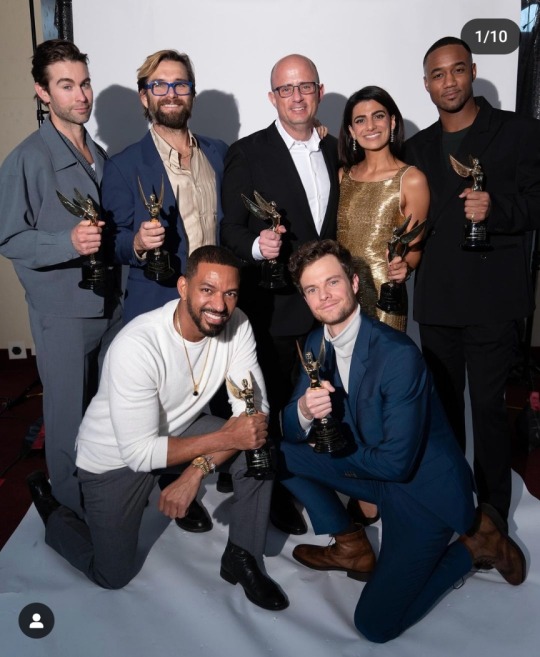


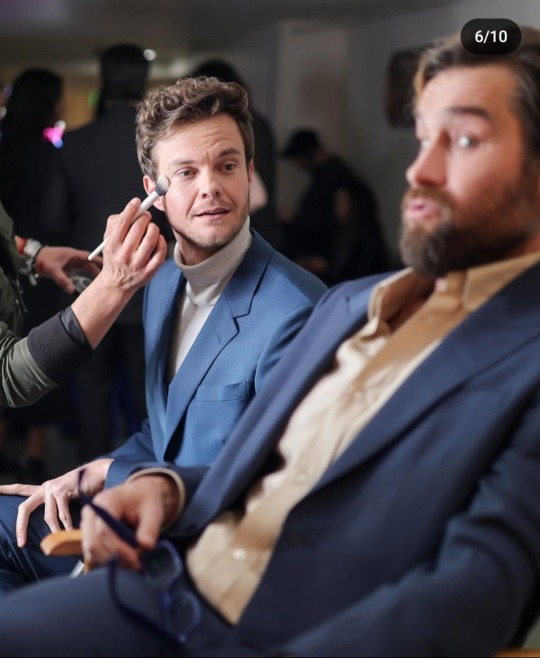
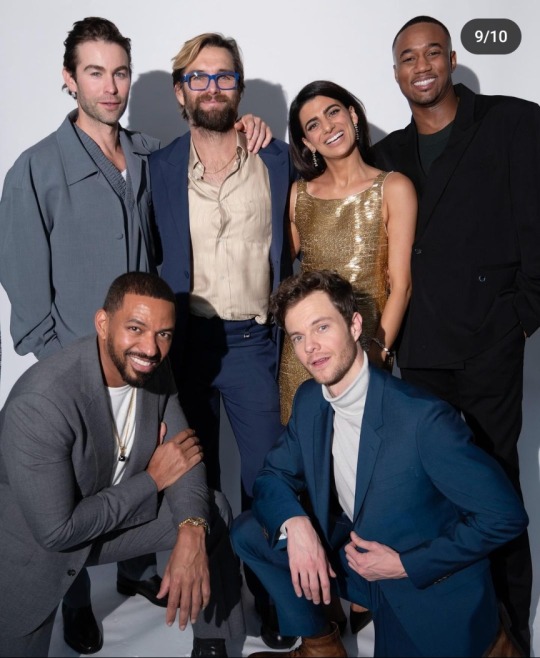


📸 Instagram | theboystv
#the boys#jack quaid#antony starr#claudia doumit#chance crawford#jessie usher#laz alonso#eric kripke#jack needs to be stopped#im so#[clenches fist]#5/10 and 9/10 are very....#im gonna get into hughlander arent i#ANYWAY
38 notes
·
View notes
Text
Vanity Fair And Amazon MGM Studios Celebrate Awards Season 2024 Party

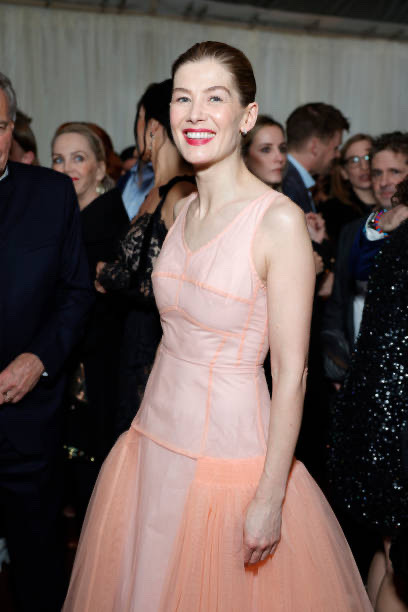

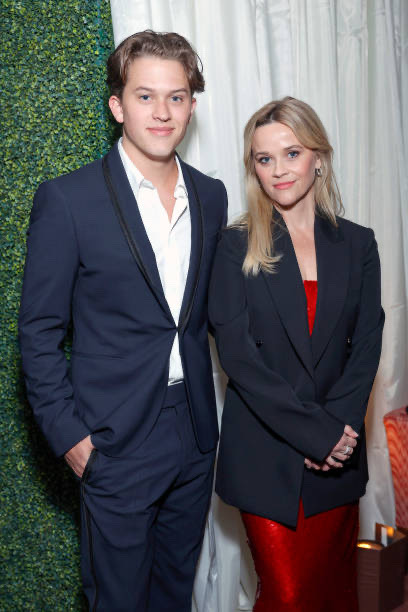
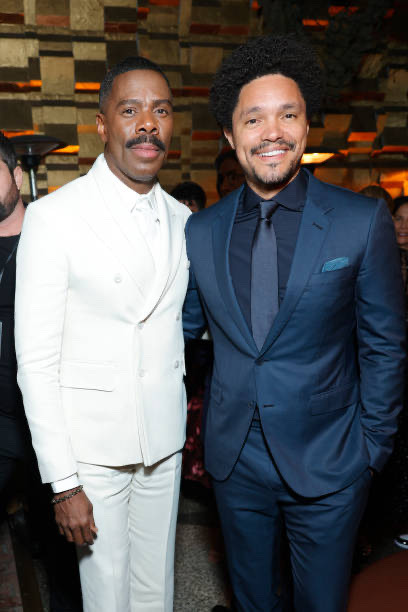
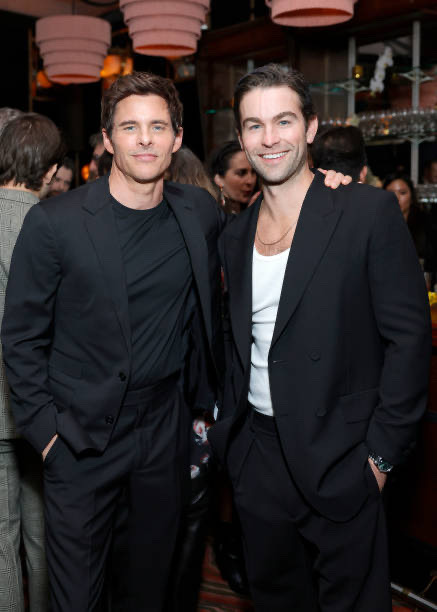

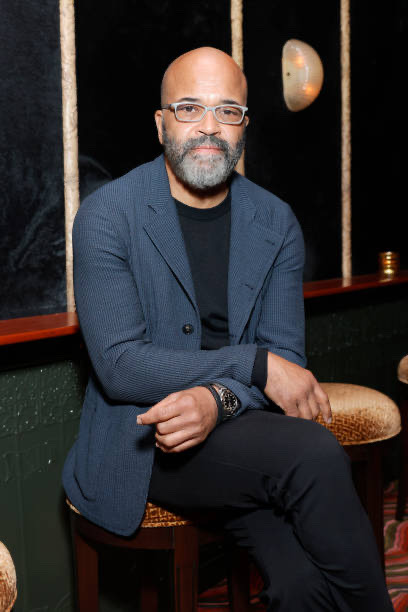
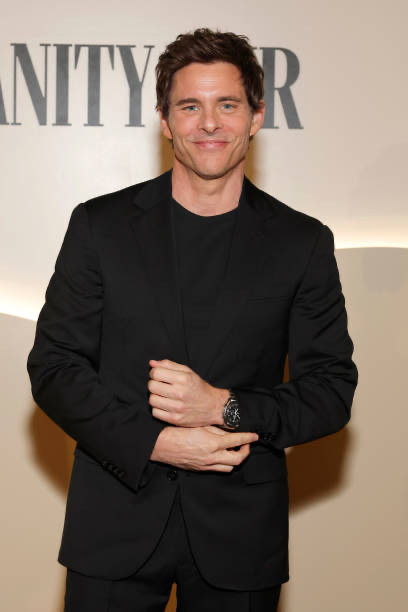

#vanity fair#amazon mgm studios#cole sprouse#Jared Leto#james marsden#jeffrey wright#colman domingo#rosemund pike#dominique fishback#jurnee smollett#reese witherspoon#deacon phillippe#chance crawford#trevor noah
14 notes
·
View notes
Text
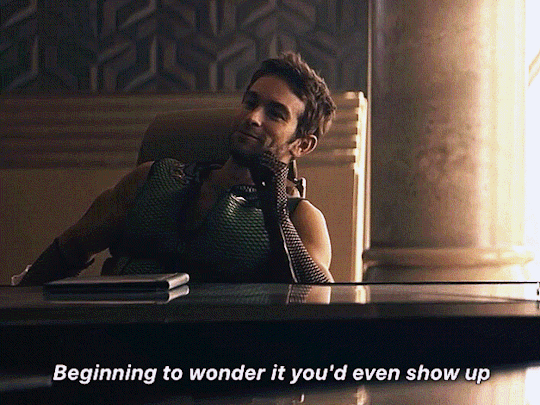


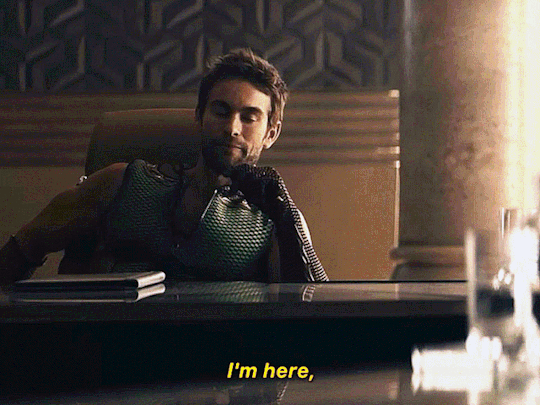
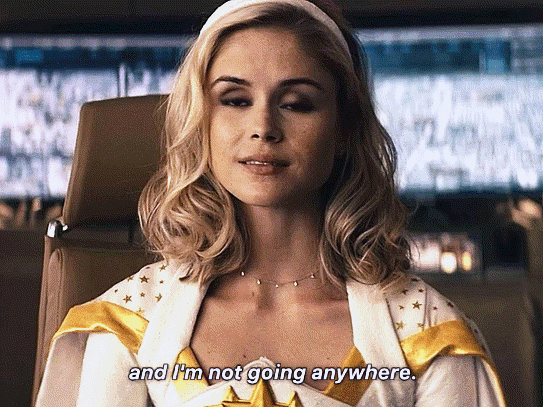

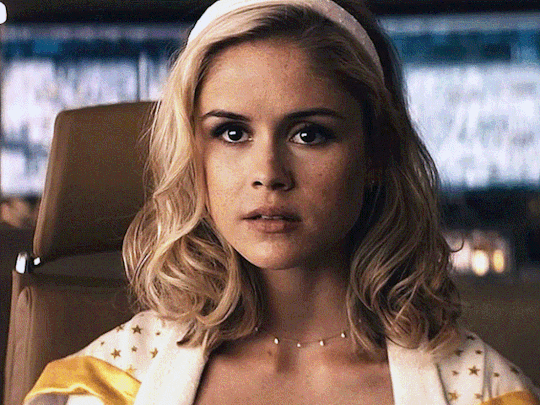
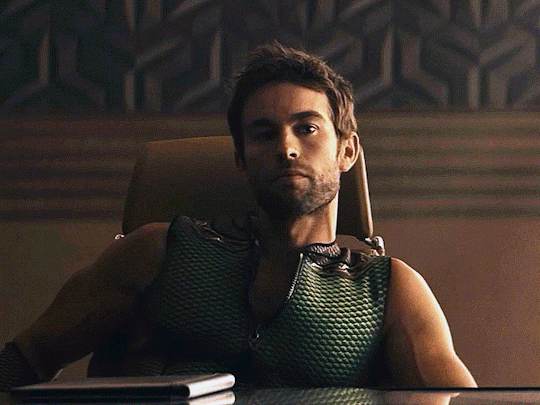
THE DEEP and STARLIGHT
The Boys (2019 - present) - "The Name Of The Game" (1.01)
#the deep#thedeepedit#the deep gif#the deep gifs#chance crawford#annie january#anniejanuaryedit#annie january gif#annie january gifs#starlight#starlightedit#starlight gifs#starlight gif#erin moriarty#the boys#theboysedit#the boys gifs#the boys gif#the boys season one#the boys s1ep1#my gifs#*mine#*mine: gifs#*myedits#*mygifs#*the boys#queue me up scotty
24 notes
·
View notes
Text
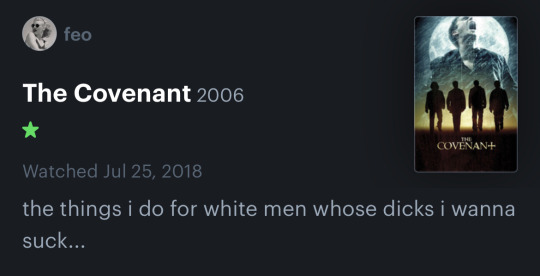
#the cast & vibe is so violently 2000s#see now this movie is why Steven Strait never advanced#the covenant#taylor kitsch#sebastian stan#chance crawford#steven strait#letterboxd#movie#film#fantasy
48 notes
·
View notes
Text
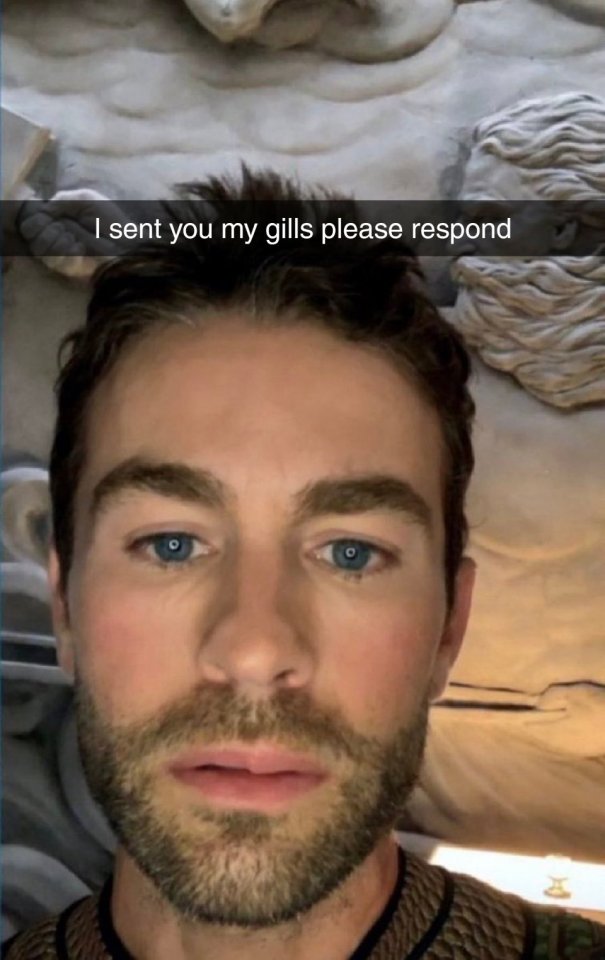
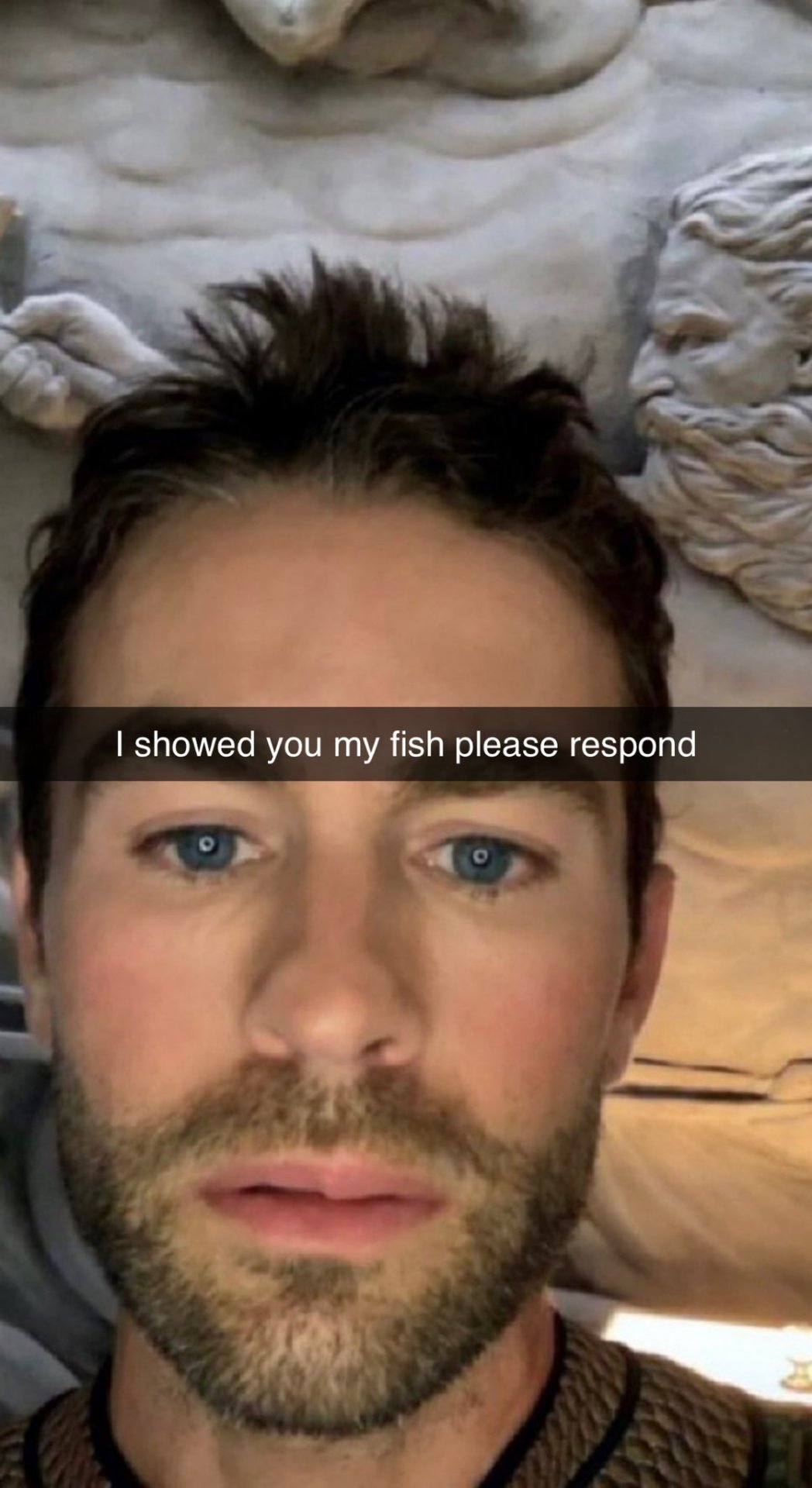

30 notes
·
View notes
Text

#bisexual hands#lerdt#lol#omg#meme#lmao#idc how straight you are#touching/feeling yourself is a gay feeling#fight me#deep thoughts with the deep#bisexual#bi#makes sense#gay#straight#chance crawford#amazon prime#the deep
9 notes
·
View notes
Photo

#eliza dushku#chance crawford#eloise#horror#movie#movies#film#films#poster#posters#movies and posters#robert patrick#horror movie#horror films#show#shows#movie poster#movie posters
4 notes
·
View notes
Text
Second-Chance Bracket: Poll 15
Propaganda under the cut
Pairing 1: Unsignshipping (Red Dark Magician/Solomons damaged Blue Eyes White Dragon )
Propaganda: Two disabled unplayable versions of the main ace cards!!! One of the rarest cards in existance and a cheap knockoff both sharing something in common
Pairing 2: Yearnshipping (Rishid Ishtar/Maxamillion Pegasus|Pegasus J Crawford)
Propaganda: Because their dynamic is interesting and fun! The posh, pretty, and flamboyant Pegasus to the rugged, stoic, and protective Rishid, pairing them together could bring some incredible changes to them. Pegasus could make Rishid more open and looser, to have fun and be silly every once in a while, and Rishid could be a sense of calm for Pegasus, to make him more levelheaded. And despite their differences, they have some things in common: they've both loss loved ones, and have sought love in the wrong ways.
Now, let’s keep things civil. This is a silly poll where we can share why we love our overlooked ships. There’s no need to be nasty to prove your point. Bashers will be banished to the Shadow Realm.
#yugioh dm rare pair poll#yugioh dm#ygo dm#ygo#yugioh#second chance bracket#Yearnshipping#Rishid Ishtar/Maxamillion Pegasus#Rishid Ishtar/Pegasus J Crawford#Unsignshipping#Red Dark Magician/Solomon's damaged Blue Eyes White Dragon
8 notes
·
View notes
Text
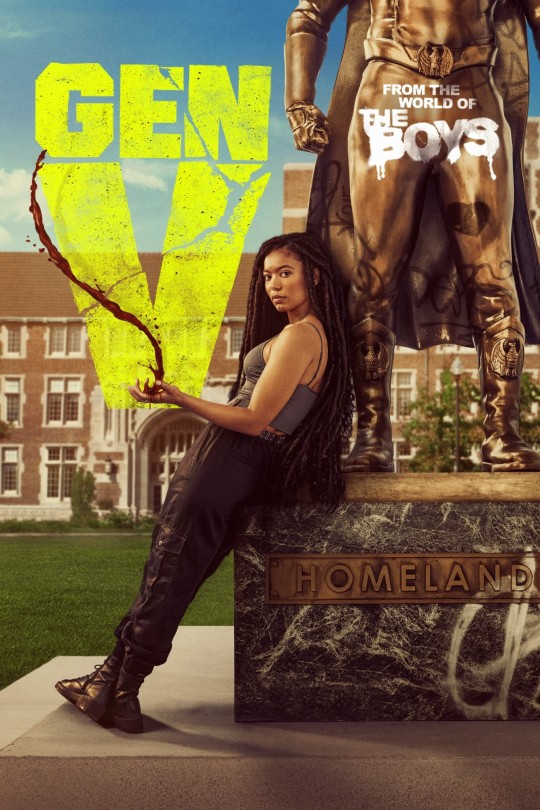
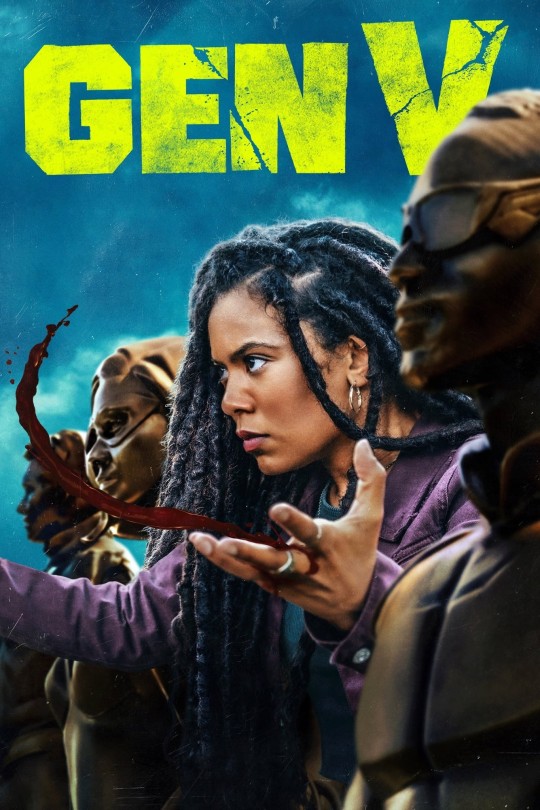


W A T C H I N G
#GEN V (2023)#THE BOYS#Jaz Sinclair#Chance Perdomo#Lizze Broadway#Maddie Phillips#London Thor#Asa Germann#Shelley Conn#Patrick Schwarzenegger#Clancy Brown#Elisabeth Shue#Jessie T. Usher#Colby Minifie#Chace Crawford#Jensen Ackles#Claudia Doumit#Antony Starr#Karl Urban#Superheros#Spin-Off#comic book#WATCHING
5 notes
·
View notes
Text

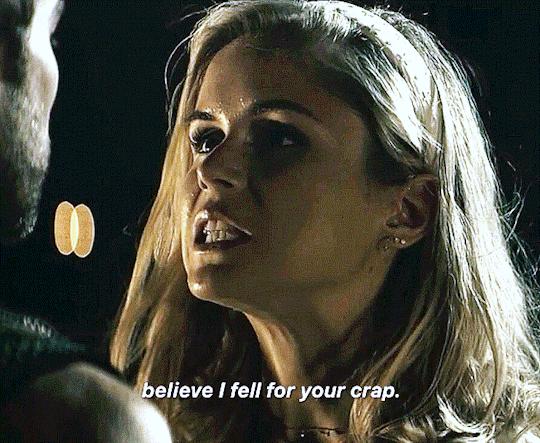


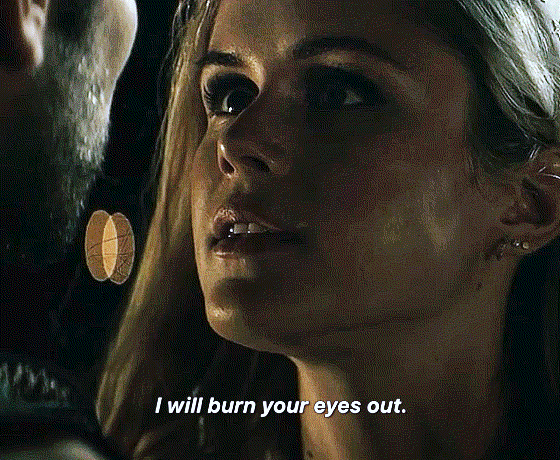

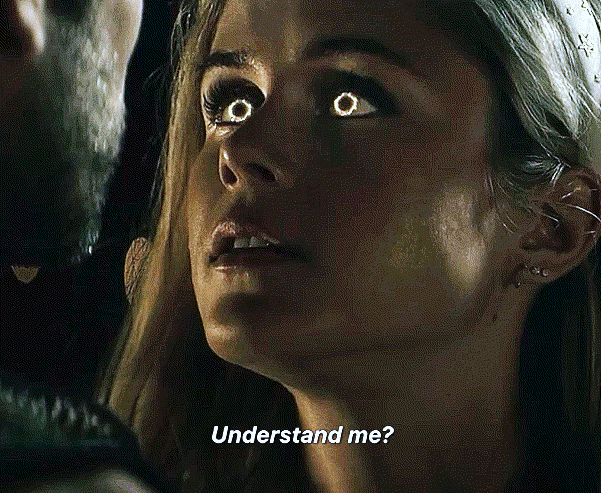
THE DEEP and STARLIGHT
The Boys (2019 - present) - "Cherry" (1.02)
#get his ass#the deep#thedeepedit#the deep gifs#the deep gif#chance crawford#annie january#anniejanuaryedit#annie january gifs#annie january gif#starlight#starlightedit#starlight gifs#starlight gif#erin moriarty#the boys#theboysedit#the boys gif#the boys gifs#the boys season one#the boys s1ep2#my gifs#queue me up scotty#*#*gifs#*edits#*mine: edits#*mygifs#*mine: gifs#*myedits
19 notes
·
View notes
Note
92 !
the bride wore red (1937), which i'll say isn't like crazy notable to me but that could have something to do with the fact that i watched uh 16 movies that week and 3 that day. that said, it was fun!
it was pretty standard 1930s joan crawford, in that it was like rags to riches social climbing partially via contrived romance. it's kind of funny though because this rich guy just like has a disagreement with a friend bc he's like class isn't actually like anything to do with virtue or value or whatever, a rich person and a poor person are the same except money. so to prove his point, without telling anyone else, he gives a broke bar singer a bunch of money and a week reservation at a fancy hotel. again that's not that weird it's like kind of pygmalion except for the part that he does literally nothing to help her, train her, etc, beyond the actual money and room. she gets some help learning like "class" from the hotel staff (so, i guess maybe pretty woman is a better comparison potentially, only in this she's actively lying to rich boy instead of like at his request), including a maid there who is an old friend of hers (who is the only one she tells about the whole thing). basically she just charms this rich group of people, especially a young rich guy who she decides she should marry except he's engaged. meanwhile she falls in love with (and is fallen in love with by) the humble town mailman (played by her at the time real life husband franchot tone. in a shocking turn of events he's not the rich asshole love interest of hers in this movie. bitches who have seen too many joan crawford movies know what i'm talking about). it's just classic should she be with the rich guy or the guy she loves, and also how long can she conceal that this is all a ruse? like overall it's fine they all find out she's lying and she ends up with the mailman
it is kind of interesting to see how the dynamic between her and the mailman and her and her maid friend change as she becomes more integrated with the high society people and also more anxious about losing it all, because she gets really snappy/bitchy to them but also can only actually feel comfortable around them. also like they do also call her on it in a way that they wouldn't with like actual upper class people. old movies are like. all about rich people lol and like kind of classist but they talk a lot more about class than modern movies which is interesting. there's like a thing where old movies will say something that reads as like a critique (like, for example, in paid 1930 they are very explicit about the fact that the legal system is biased and made to benefit the rich) but they don't actually critique it they're just like yeah this is a thing that is true (and always will be and always has been-- in other contexts it just is gender essentialism lol)
i have to shout it out though for being directed by dorothy arzner, and also for having a fun little mini monologue that i literally wrote down while watching it because i was like i just like this and it's so silver springs fleetwood mac. here let me find it. while she's trying to get rich boy but he's like i'm engaged, she says:
"But I want you to love me. I want you to marry her and I want my love to haunt you. To make you lie awake at night. To burn your heart. To make you sick with pain. I want you to think of me and ache for me. I want to never see you again."
#asks#answered#callixton#thank you for the ask!!#the bride wore red#joan crawford#old hollywood#i will say. just. as a note. if you send me one of thses asks (please do!!)#you have about a one in three chance of the movie having either bette or joan. so.#i gotta start making my posts more readable these sentences are so fucking long and parenthetical and whatnot.#but thats just how i think talk write post etc. sorry
3 notes
·
View notes
Text
Working for Industrial Illusions: Welcome aboard! Now remember, if you have any questions about your benefits, don't hesitate to ask. We have great dental and health insurance, maternity and paternity leave, a full month of PTO each year, sick leave, tuition assistance, stock options, 401(K), an automatic annual pay raise, and we also offer pensions! Oh, and feel free to help yourself to the wide array of food in the cafeteria, nice little perk of the corporate meal plan. Hope you like it here, and we look forward to working with you!
Working for Kaiba Corporation: We've reviewed your job performance and noticed you've been with this company for twelve years. We also noticed your team do triple the work of others within your department and contributed to the significant profit margin last quarter. I have also been informed you worked extra hours past your scheduled shifts and came in on your days off to meet the deadline of several major projects. A team member also informed me that you missed the birth of your third child in order to set up the new network for Kaiba Corporation's systems last month. This is the standard we come to expect from our employees. As a show of our recognition of your hard work and dedication, here's our gift to you:

Now get back work.
#Seto Kaiba made many improvements to Kaiba Corporation when Gozaburo died#his treatment of the employees was not one of them#people prefer to work for Pegasus rather than Seto when they get the chance#this is proven in GX#yugioh#dm#gx#ygo#Seto Kaiba#Kaiba Corporation#KC#Pegasus#Maximillion Pegasus#Pegasus J Crawford#Industrial Illusions#benefits#work culture
44 notes
·
View notes


